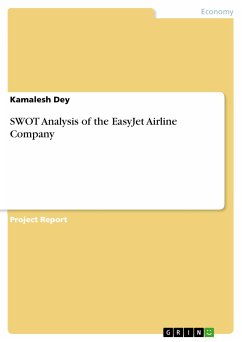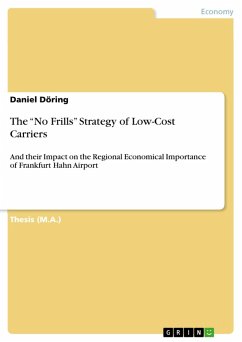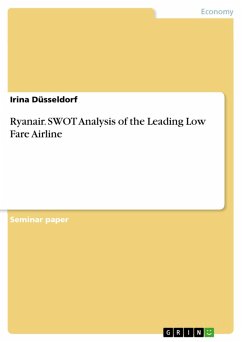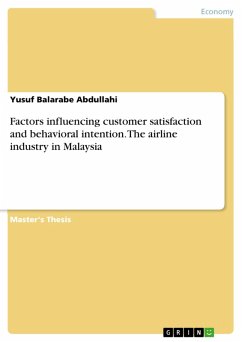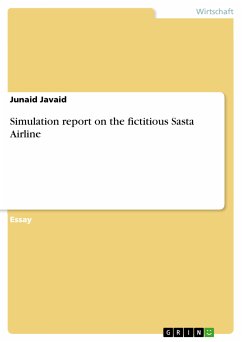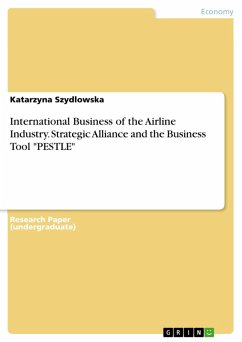Project Report from the year 2015 in the subject Business economics - Offline Marketing and Online Marketing, grade: B, University of Bedfordshire (UNIVERSITY OF BEDFORDSHIRE), course: MBA (HEALTH SERVICES MANAGEMENT), language: English, abstract: The report critically examined the strategic operation management (OM) decisions of EasyJet low cost Airline Company and how they operated their service successfully throughout the Europe. The report also briefly explored three key OM decisions for instances Quality Management, Service Design, and Capacity Design of EasyJet Airline Company. In addition, the report analysed the entire EasyJet Company based on SWOT analysis framework and also recommended to achieve their competitive advantages through the customer satisfaction with low air fares. The EasyJet low cost airline company followed strategic OM decisions throughout their business cycles. The EasyJet was launched in 1995 with small capacity but within fifteen years they developed business very competitively. They introduced modern technology in their service. From 2014, they initiated paperless cockpit and started to use laptop as well as printed navigational map. In addition, they got membership with European emissions trading scheme from the last ten years. They reduced CO2 gas emission and waste as well through waste recycling process. The airline company had many strong points to success their business, however they had some minimal drawbacks what might harm their business. Overall, the EasyJet airline company recommended to follow principle OM decisions to promote their business. In addition, The EasyJet Company also suggested to follow the Southwest Airline (SA) strategic map to promote their continuous success and expand their service worldwide.
Bitte wählen Sie Ihr Anliegen aus.
Rechnungen
Retourenschein anfordern
Bestellstatus
Storno

